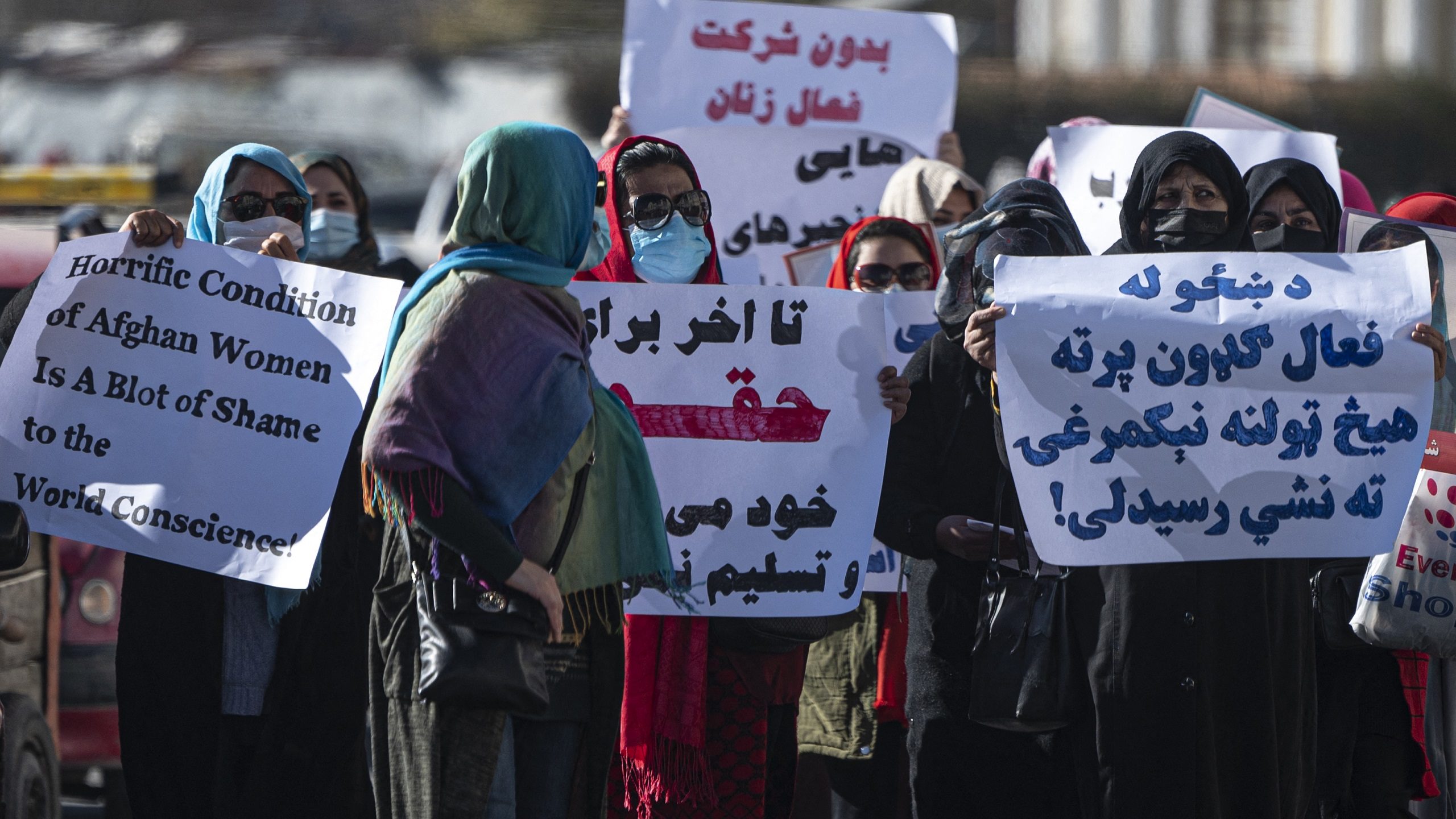MENA and the World Mark International Day for the Elimination of Violence Against Women
About 30% of women around the world will experience physical or sexual violence, mostly at the hands of their spouse or significant other, or in the case of girls by the people closest to them; in some countries, that figure is 70%. Many of these women and girls do not seek help from others. That is part of the reason for the establishment more than 20 years ago of the International Day for the Elimination of Violence Against Women.
November 25, which falls this year on Friday, was chosen in 1999 as the International Day for the Elimination of Violence Against Women, to commemorate the date in 1960 when people acting on behalf of the Dominican Republic’s dictator, Rafael Trujillo, murdered the Mirabal sisters. Patria, Minerva, and María Teresa Mirabal, who were activists against the Trujillo regime, were beaten and strangled to death, and then their bodies were driven in a vehicle off a mountainous road.
The International Day for the Elimination of Violence Against Women is also a precursor to the observance, following 16 days of remembrance and activism, of International Human Rights Day.
This year, the global umbrella theme of the 16 days of activism, set by the UN Women’s committee, is “UNITE! Activism to end violence against women and girls.”
Violence against women, as well as efforts to erase women from the public sphere, as well as the public humiliation of women, are well known to the MENA region.
In Egypt just this week a 16-year-old girl was married and divorced the following morning when her husband accused her of not being a virgin. But the teen was taken by her father to a gynecologist who determined that she was, indeed, a virgin, and she was returned to her village hoisted on her father’s shoulder and waving the pristine white sheet from her bed as he loudly proclaimed: “The chaste and honorable has arrived, O village.”
In Afghanistan on Wednesday, three women were publicly lashed in a stadium in Logar province, south of Kabul, accused of adultery; several men also received floggings. Earlier this month, women were barred by the ruling Taliban from parks and entertainment venues, as well as gyms. Schools for girls have been closed for over a year. Women must wear a hijab or burqa in public and are banned from traveling without a male escort.
On the eve of International Day for the Elimination of Violence Against Women, more than a dozen Afghan women protested in the Afghan capital Kabul near Shah-Do Shamshira Mosque, calling for their rights to be recognized. “We will fight for our rights to the end, and we will not surrender,” read a sign in the Dari language carried by one of the protesters. Another protester carried a sign in English reading, “Horrific condition of Afghan women is a blot of shame to the world conscience!” As they marched, they chanted “women, life, solidarity,” echoing the “women, life, freedom” slogan of protesters against the Islamist regime in Iran. Most of the women wore dark sunglasses, their heads covered with veils and surgical masks obscuring their faces.
In Israel, women and their supporters were set to gather on Thursday evening in Tel Aviv for the annual march and rally commemorating the International Day for the Elimination of Violence against Women. The event, sponsored by the Tel Aviv Municipality, is organized by the Association of Rape Crisis Centers in Israel (ARCCI) in cooperation with a myriad of organizations.
Earlier this week the ARCCI released its annual report, which said that some 6,922 complaints registering cases of sexual offenses and sexual harassment were opened with the police in 2021. Some 83% of the complaints were instances of harm to women and girls, and the rest were against men and boys. And 43% of the cases involved harm to a minor.
Women in Iran have been in the streets protesting against the government since the death in September of Mahsa Amini, a 22-year-old Kurdish Iranian woman, while in the custody of the Guidance Patrol, widely known as the morality police, for wearing her hijab incorrectly. Women in Iran, including celebrities, have been seen and filmed taking off their hijabs and even publicly cutting their hair. Over 400 people have been killed during protests by Iranian security forces and at least six people connected to the protests have been sentenced to death, and thousands have been arrested.
Also on Thursday, the United Nations Human Rights Council held a special session in Geneva to discuss the deadly crackdown on anti-government protests in Iran. The draft resolution put forward by Germany and Iceland that is being debated at Thursday’s meeting says that the investigation should include “the gender dimensions of such violations,” referring to the issue of women protesters and their actions.
In a statement issued to mark the International Day for the Elimination of Violence against Women, US President Joe Biden said, “We remember that gender-based violence continues to impact millions of women, girls, and marginalized people around the world, particularly in areas of democratic backsliding, conflict, and instability. The United States will not stand by as they face pain and suffering. Today, we stand in solidarity with the women of Ukraine suffering Russia’s brutal and unjust war, where we are once more seeing rape used as a weapon. We stand with the women of Russia, against whom domestic violence was partially decriminalized in 2017. We stand with the women of Iran, who are facing down violence and oppression to demand their human rights and fundamental freedoms. And we stand with the estimated one in three women around the world who will experience physical violence, rape, or stalking at some point in their lifetimes.”


